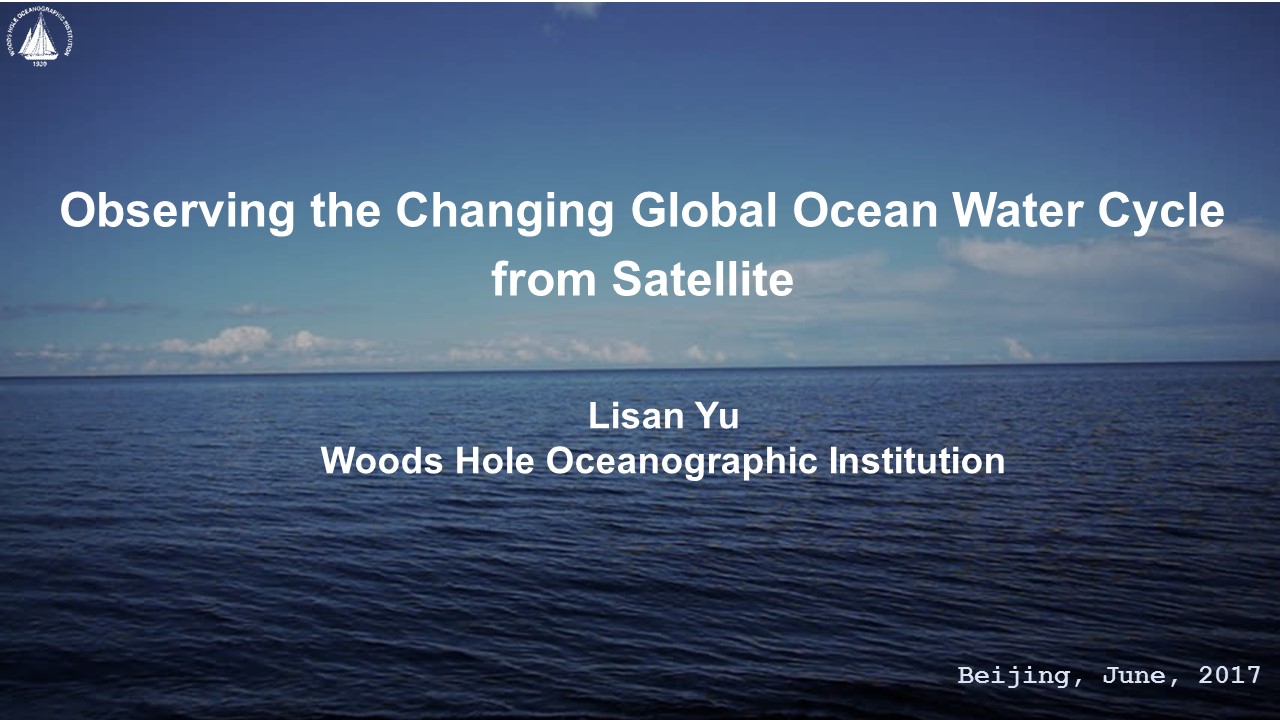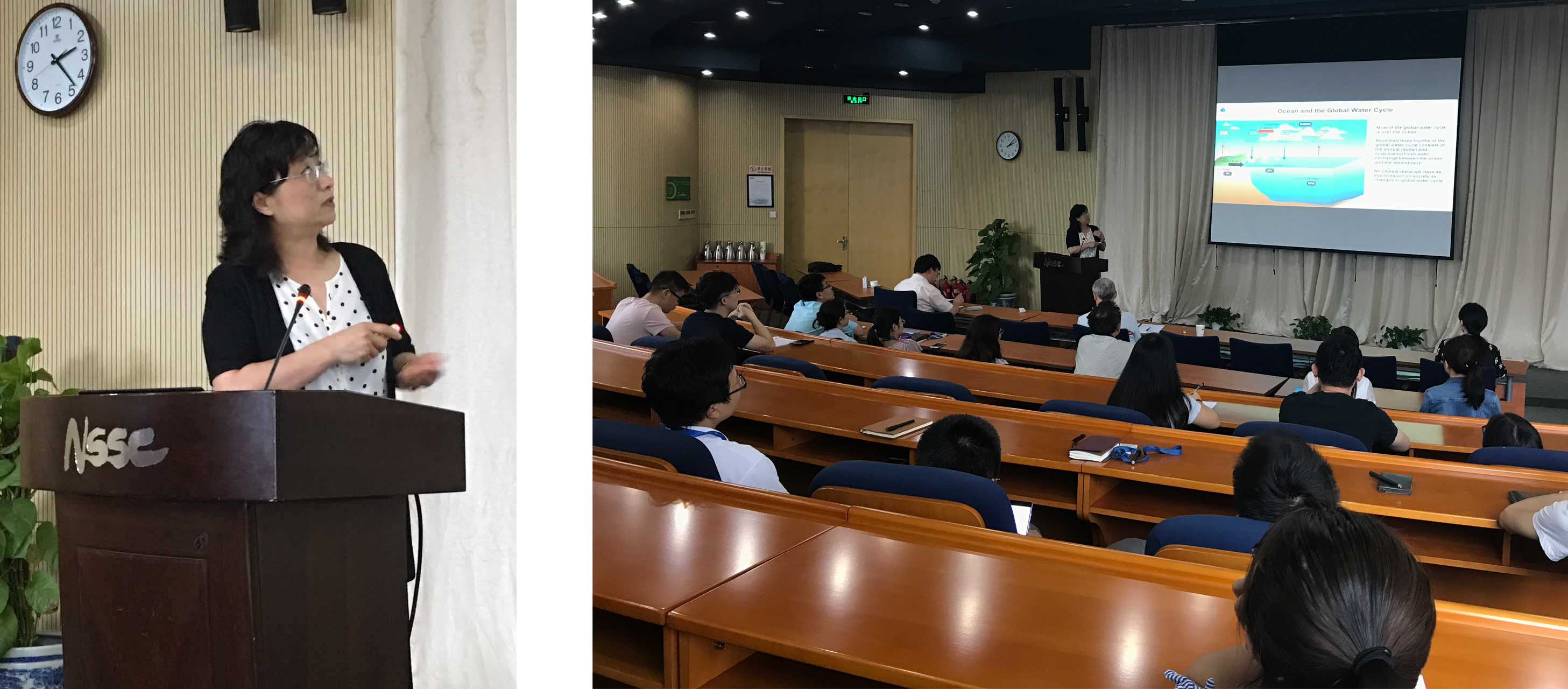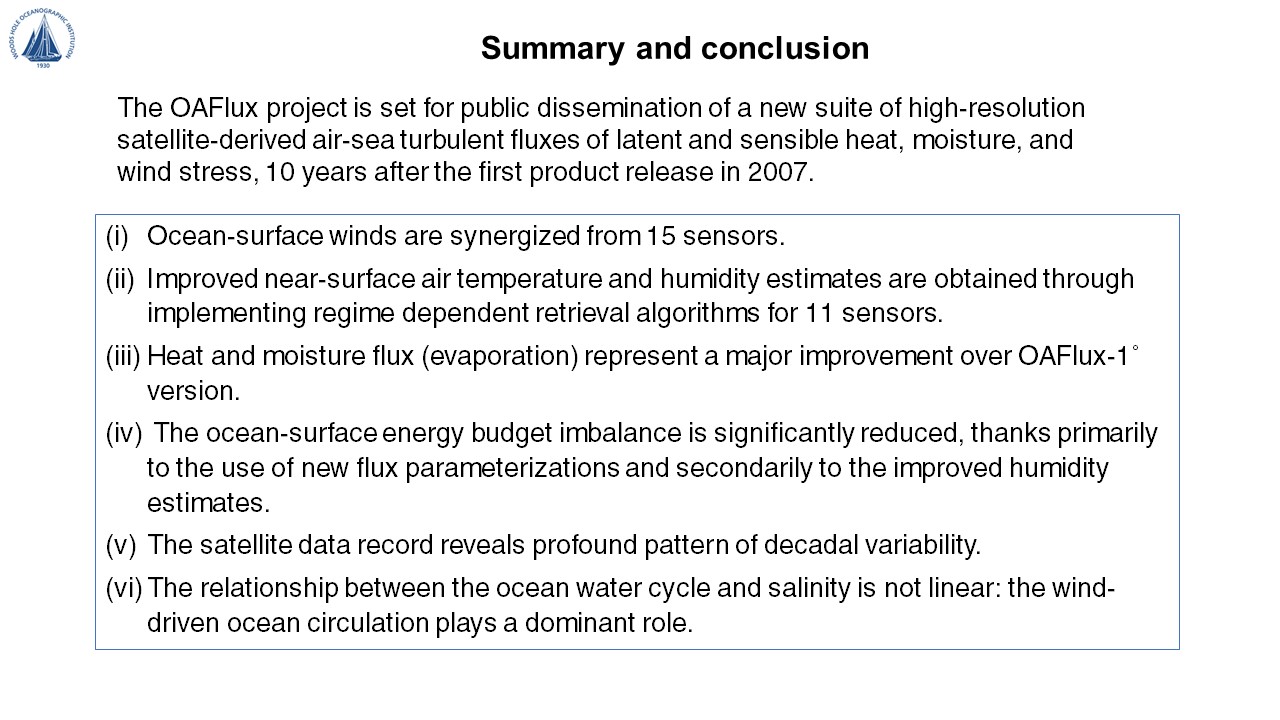Observing the Changing Global Ocean Water Cycle from Satellite: a major scientific, technological and data analysis challenge
On Thursday, June 22nd, ISSI-BJ had the pleasure of hosting Dr. Lisan Yu of the Woods Hole Oceanographic Institution (WHOI), one of the leading oceanography institutes in the world, located near Cap Cod in Massachusetts, U.S., as the speaker of its Space Science Seminar Series (4S), organized jointly with the Key Laboratory of Microwave Remote Sensing, National Space Science Center, Chinese Academy of Sciences.

Dr. Yu explained to a fully captivated audience the central role played by our oceans both in the water cycle (the oceans are for sure our main water reservoir) and in the energy cycle of our planet. These two cycles are couples via the evaporation and precipitation fluxes at the ocean surface. The salinity of ocean surface waters, which is highly variable in space, can be partly used as a tracer of the evaporation – precipitation global pattern, but it is also influenced by surface winds.

Retrieving the different fluxes characterizing the exchanges of moisture, energy, etc., between sea and air, which are critical ingredients to understand how the Earth’s climate engine works, is therefore a non-trivial problem. It can be addressed more and more accurately with the world fleet of oceanography and weather satellites, using a combination of sensors giving access to the different parameters of the sea-air interface, and sophisticated tools for data assimilation and numerical simulation. Dr. Yu nicely introduced us to some of them, and emphasized the role that the global Water Cycle Observation Mission (WCOM, see the Taikong magazine #8, May 2016) recently selected by China as part of its program of space science missions, is going to play in the world-wide effort to address this challenge.
